Gastric Cancer
-
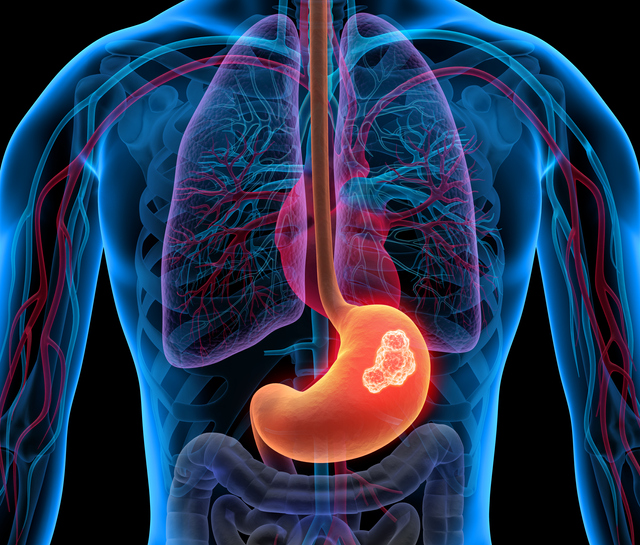
Study reveals new clue to gastric cancer
Researchers at Vanderbilt University Medical Center have uncovered evidence of fibroblast cells' direct involvement in the development of gastric cancer. Read MoreJul 7, 2023
-

Study reveals how gastric cancer forms, suggests preventive treatment
Eunyoung Choi, PhD, assistant professor of Surgery, and colleagues identified for the first time that Trop2+/CD133+/CD166+ dysplastic stem cells are a key source of clonal evolution of dysplasia to multiple types of gastric cancer. Read MoreJun 23, 2022
-
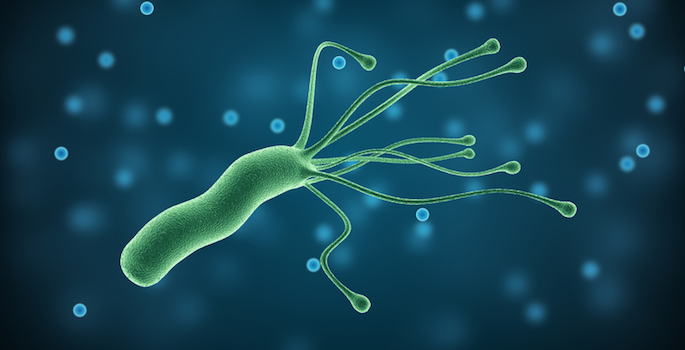
H. pylori, lipid loss and stomach cancer
H. pylori infection — a strong risk factor for stomach cancer — changes the composition of stomach lipids, which could offer new biomarkers for detecting premalignant changes, Vanderbilt researchers discovered. Read MoreJan 17, 2022
-

Oral microbes and gastric cancer
Studies in three large population cohorts that include Asian, African American and European American people support a role for the oral microbiota — the collection of microbial species in the mouth — in gastric cancer development. Read MoreDec 13, 2021
-
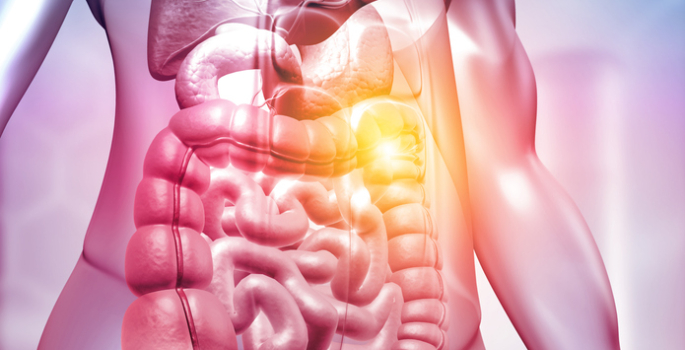
Study gauges specific site stomach cancer risks among ethnic groups
Non-white Americans, especially Asian Americans, are at disproportionately higher risk for gastric cancer compared to non-Hispanic white Americans. A new study breaks down this risk according to specific ethnicities and locations within the stomach. Read MoreAug 6, 2020
-

Stomach bug hit-and-run
The H. pylori machinery that “injects” an oncoprotein into stomach cells contributes to the development of gastric cancer, Vanderbilt researchers demonstrate. Read MoreJul 23, 2020
-

Powering H. pylori pathogenesis
Timothy Cover and colleagues report new insights into the sources of energy used by a bacterial “machine” linked to the pathogenesis of stomach cancer. Read MoreFeb 6, 2020
-

A step toward gastric cancer
New research findings provide insight into the detrimental events that develop in response to H. pylori infection. Read MoreOct 3, 2019
-
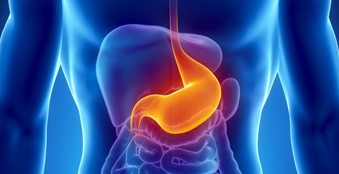
Early drivers of gastric cancer
Using bioinformatics approaches, Vanderbilt investigators have identified gene expression networks that are deregulated in mouse and human stomach cancers. Read MoreAug 8, 2017
-
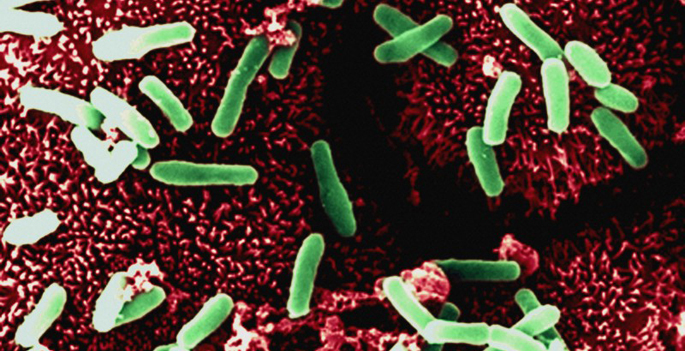
New target for chronic infection
An enzyme in macrophage immune cells may be a good target for treating chronic infections, Vanderbilt researchers have discovered. Read MoreFeb 2, 2017
-

A DARPP role in gastric cancer
Vanderbilt researchers have discovered a link between Helicobacter pylori infection, inflammation and gastric cancer that could suggest new anti-cancer therapies. Read MoreNov 3, 2016
-

Study suggests cancer’s ‘clock’ can be rewound
Researchers at Vanderbilt University Medical Center have “turned back the clock” in a mouse model of metaplasia — precancerous stomach lesions — raising hopes that gastric cancer, a worldwide scourge that’s rising in the United States, can be prevented. Read MoreMar 17, 2016
-

VUCast Extra: Making a Difference in Latin America
From a new product to combat childhood malnutrition in Guatemala to a low-cost capsule for stomach cancer screenings to preserving the history of slave societies, Vanderbilt is helping find solutions, making discoveries and changing lives. Read MoreNov 12, 2015
-
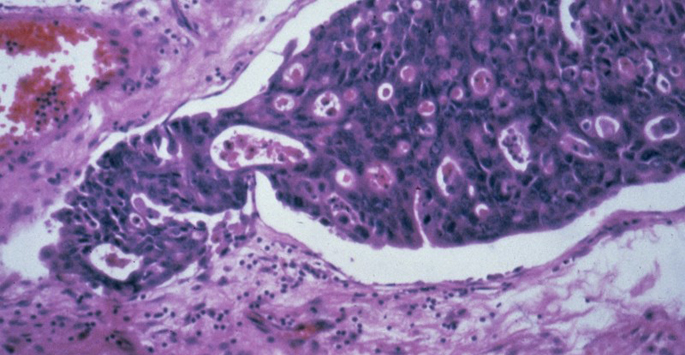
Stomach cancer cues
Vanderbilt scientists have discovered a new molecular mechanism that promotes stomach cancer development, findings that could provide new opportunities for treatment. Read MoreAug 6, 2015
-
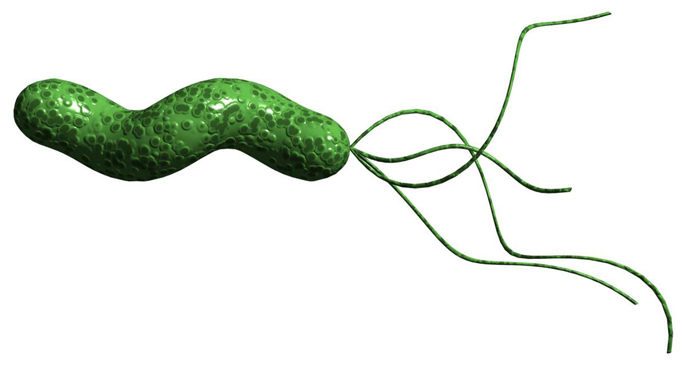
Host sequesters zinc to control stomach bug
Understanding how zinc and the host’s immune response control H. pylori’s cancer-causing potential could suggest new therapeutic strategies to reduce infection and cancer risk. Read MoreNov 21, 2014
-

Human and Helicobacter co-evolution
by Denise Anthony (iStock) A Vanderbilt University-led research team has solved a long-standing riddle: Why do people of mostly Amerindian ancestry in the Andes have a gastric cancer rate that is 25 times higher than that of fellow Colombians of mostly African descent only 124 miles away on the coast?… Read MoreJan 23, 2014
-

Therapeutic target for gastric cancer
A protein kinase linked to inflammation and tumor development may be a good target for gastric cancer therapies. Read MoreDec 12, 2013
-
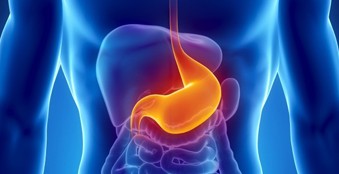
Cell changes en route to stomach cancer
Molecular characterization of pre-cancerous changes in cells lining the stomach could point to lesions with a greater risk of progression to cancer. Read MoreSep 26, 2013
-

Noninvasive test detects stomach bug
A noninvasive test can be used to identify the presence of Helicobacter pylori and evaluate its virulence, which will be useful in areas with high rates of H. pylori-associated gastric cancer. Read MoreAug 12, 2013
-

Salt revs stomach bug’s cancer impact
A high-salt diet worsens the carcinogenic effects of Helicobacter pylori, a bacterium that colonizes the stomachs of half of the world’s population. Read MoreMay 13, 2013